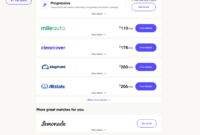Non-owner car insurance is an essential form of coverage for individuals who operate vehicles without owning them. This type of insurance is designed to provide financial protection and peace of mind to drivers who occasionally rent, borrow, or operate vehicles that belong to someone else. In this guide, we will delve into the intricacies of non-owner car insurance, including its definition, coverage options, benefits, eligibility criteria, costs, and how it compares to other types of insurance. By the end, you will have a comprehensive understanding of non-owner car insurance and its significance in today’s automotive landscape.
Table of Contents
ToggleUnderstanding Non-Owner Car Insurance
Definition
Non-owner car insurance is a specialized type of insurance policy that provides liability coverage for individuals who drive vehicles that they do not own. It is designed to protect drivers from financial liability in case they cause an accident while operating someone else’s vehicle. Unlike traditional car insurance, which is tied to a specific vehicle, non-owner car insurance covers the driver and is applicable regardless of the car being driven.

Who Needs Non-Owner Car Insurance?
Several scenarios may necessitate non-owner car insurance, including:
- Individuals Who Rent or Lease Cars: People who frequently rent vehicles for travel or business may benefit from non-owner coverage, especially if the rental company’s insurance options are inadequate.
- Individuals Borrowing Cars: If you regularly borrow cars from friends or family, non-owner insurance ensures that you have liability coverage while driving their vehicles.
- Company Vehicle Drivers: Employees who drive company cars but do not own them may require non-owner insurance to cover their liability while driving.
- Occasional Drivers: Individuals who may not drive regularly but want to maintain liability coverage for those rare occasions.
How Non-Owner Car Insurance Differs from Traditional Car Insurance
The primary difference between non-owner car insurance and traditional car insurance lies in ownership and coverage scope. Traditional car insurance is associated with a specific vehicle and provides coverage for bodily injury, property damage,
and physical damage to the vehicle itself. In contrast, non-owner car insurance focuses solely on liability protection for the driver, excluding coverage for damage to the vehicle being operated.
Coverage and Benefits of Non-Owner Car Insurance
Key Coverage Options
Non-owner car insurance typically includes several essential coverage components:
- Bodily Injury Liability: This coverage pays for medical expenses, lost wages, and other damages for individuals injured in an accident where you are at fault.
- Property Damage Liability: This component covers the costs of repairing or replacing property that you damage while driving a non-owned vehicle.
- Medical Payments Coverage: This coverage provides medical expenses for you and your passengers in the event of an accident, regardless of who is at fault.
- Rental Car Coverage: In some cases, non-owner insurance may offer rental car coverage if your primary vehicle is damaged or destroyed in an accident.
Financial Protection in Various Scenarios
Non-owner car insurance provides crucial financial protection in several situations:
- Accidents in Borrowed Cars: If you’re involved in an accident while driving a friend’s car and their insurance doesn’t cover you, non-owner insurance can step in to protect you from liability claims.
- Injuries While Driving Rentals: If you rent a car and are injured in an accident, your non-owner insurance may help cover medical expenses.
- Liability in Company Vehicles: If you’re driving a company car and cause damage, non-owner insurance can help cover costs that exceed your employer’s insurance limits.
Additional Benefits
- Affordable Premiums: Non-owner car insurance is often less expensive than traditional car insurance since it does not cover the physical damage to the vehicle.
- Flexible Coverage: This type of insurance allows you to maintain liability coverage without the need to own a vehicle, making it an ideal option for individuals who don’t drive frequently.
Eligibility and Requirements for Non-Owner Car Insurance
To qualify for non-owner car insurance, applicants typically need to meet certain requirements:
- Valid Driver’s License: You must have a current, valid driver’s license to apply for non-owner car insurance.
- State Residency: You need to be a resident of the state where you are purchasing the policy, as insurance regulations vary by state.
- No Vehicle Ownership: You must not own a vehicle or have regular access to one. If you own a vehicle, you will need traditional auto insurance instead.
Factors Affecting Eligibility
In addition to the basic requirements, insurance companies may consider additional factors when determining eligibility for non-owner car insurance:
- Driving History: A clean driving record with no recent accidents or violations will increase your chances of obtaining coverage.
- Annual Mileage: The less frequently you drive, the more favorably insurers may view your application.
- Previous Insurance History: Having a history of consistent insurance coverage can positively impact your eligibility and premiums.
Cost and Premiums of Non-Owner Car Insurance
Premium Calculation Factors
The cost of non-owner car insurance varies based on several factors, including:
- Driver’s Age and Experience: Younger drivers or those with less experience may face higher premiums due to perceived risk.
- Driving History: A history of safe driving can lead to lower premiums, while a record of accidents or violations may increase costs.
- Desired Coverage Amount: The more coverage you opt for, the higher your premiums will be.
- State Regulations: Insurance premiums can vary significantly depending on the state in which you reside, influenced by local laws and insurance market conditions.
How to Find Affordable Non-Owner Car Insurance
To secure the best rates for non-owner car insurance, consider the following strategies:
- Compare Quotes: Obtain quotes from multiple insurance providers to find the most competitive rates.
- Increase Your Deductible: Choosing a higher deductible can lower your premiums, but be sure you can afford the deductible amount in case of a claim.
- Defensive Driving Courses: Completing a defensive driving course may qualify you for discounts, as insurers view it as a sign of a responsible driver.
Comparison to Other Insurance Options
Traditional Car Insurance vs. Non-Owner Car Insurance
While both types of insurance serve to protect drivers, they cater to different needs:
- Traditional Car Insurance: Provides comprehensive coverage for the specific vehicle owned, including liability, collision, and comprehensive protection.
- Non-Owner Car Insurance: Focuses solely on liability coverage for drivers who do not own a vehicle, making it a more affordable option for those who occasionally drive.
Renter’s Insurance vs. Non-Owner Car Insurance
- Renter’s Insurance: Covers personal belongings and liability protection for individuals living in rented housing. It does not provide coverage for vehicles.
- Non-Owner Car Insurance: Specifically tailored for drivers who do not own vehicles but need liability protection while driving others’ cars.
Common Questions About Non-Owner Car Insurance
Is Non-Owner Car Insurance More Expensive Than Traditional Car Insurance?
Generally, non-owner car insurance is more affordable than traditional car insurance, as it covers only liability and specific scenarios rather than comprehensive vehicle protection. However, the exact costs will depend on individual circumstances and risk factors.
Can I Add Non-Owner Car Insurance to My Existing Renter’s or Homeowner’s Insurance Policy?
No, non-owner car insurance is a separate policy and cannot be added to renter’s or homeowner’s insurance. It specifically covers individuals who do not own a vehicle but need liability protection while driving.
What Happens if I’m in an Accident While Driving a Non-Owned Vehicle and the Owner’s Insurance Doesn’t Cover Me?
In such cases, non-owner car insurance provides coverage for liability and associated expenses, protecting you even if the vehicle owner’s insurance does not extend coverage to you.
Can Non-Owner Car Insurance Cover Rental Cars?
Yes, non-owner car insurance can cover liability when renting a vehicle. However, it does not provide coverage for damage to the rental car itself, which may require the purchase of additional insurance from the rental company.
Concluding Remarks
In conclusion, non-owner car insurance is an indispensable tool for individuals who require vehicle coverage without ownership. Its tailored protection safeguards drivers against liability, rental car expenses, and other potential financial burdens.
By understanding the eligibility criteria, coverage options, and cost factors associated with non-owner car insurance, you can make informed decisions that align with your driving habits and financial circumstances.
Embracing the benefits of non-owner car insurance allows you to drive with confidence, knowing that you’re protected even when you don’t own the vehicle you’re operating.
This insurance type provides peace of mind and ensures that you can navigate the complexities of driving various vehicles while remaining financially secure.
Whether you are an occasional driver, a car-sharing enthusiast, or someone needing temporary coverage, non-owner car insurance is a valuable asset to consider. With its affordability and flexibility, it can meet your unique insurance needs while protecting you from unexpected financial liabilities on the road.




